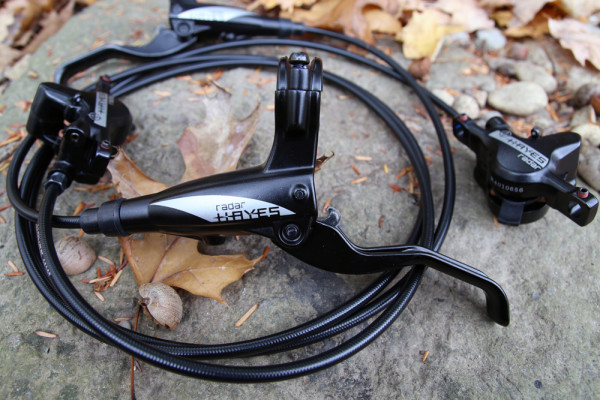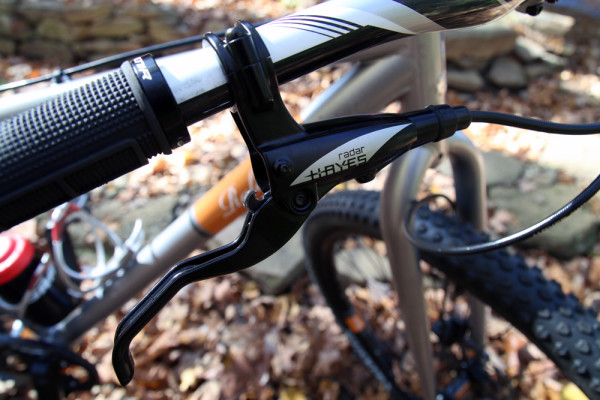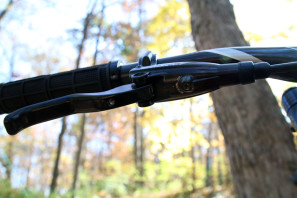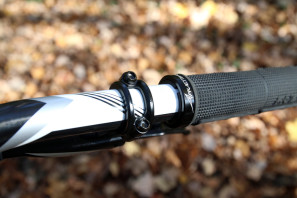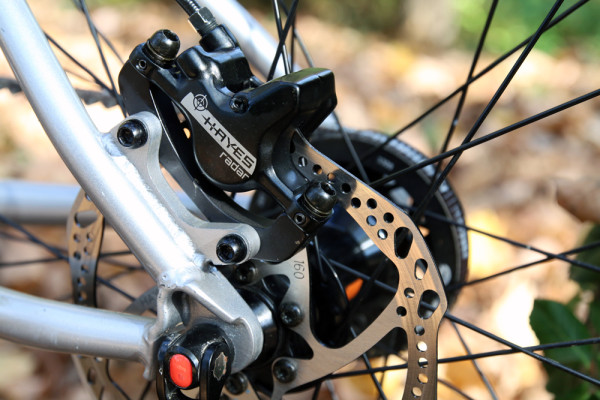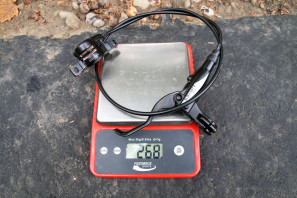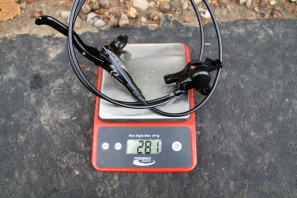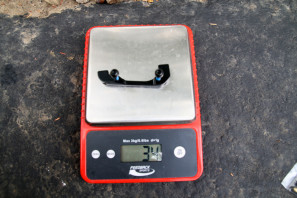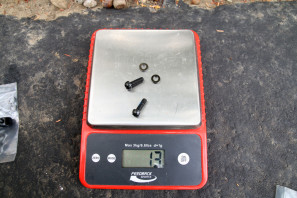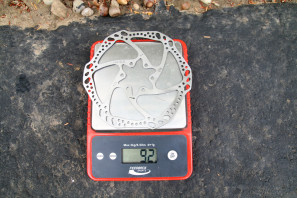As a long time supporter of the use of DOT fluid for their disc brakes, the first Hayes brake based on mineral oil has arrived. While the company still believes in the use of DOT fluid for many applications, the fact that some OEM bike manufactures (mostly in Europe) are requiring mineral oil brake systems for their bikes has spurred the development of the Hayes Radar. The brake is the first to use the new Hayes Venom mineral oil, which like other mineral oil systems is non-toxic and safe for painted and finished surfaces.
The Radar is more than just a move to mineral oil however as the brake has been designed to use fewer parts and offer a simple, durable design. Fewer parts also means the system is easier to manufacture which ultimately results in a more affordable product. Expect the Hayes Radar to start showing up on complete bikes soon but we’ve got early report on their performance next…
Positioned in the Hayes brake line up between the Dyno and the Prime, the Radar is positioned to compete with brakes like the Magura MT2, Avid Elixir 3 and Shimano Deore. Priced at $95 per brake (rotors and adapters not included), the brake still offers some impressive features for relatively few dollars. Using a 360 degree bladder in the lever, the flip flop design includes a split clamp for easy service or adjustment while the lever offers a tooled reach adjust through a 2.5mm allen screw.
The shape of the lever is nice an long meaning that riders that still prefer a 2 finger braking technique won’t be disappointed. If you prefer the 1 finger method though, they can be pushed inboard and work just as well. The threaded bleed port is located on the bottom of the reservoir, so the brake must be rotated upward for bleeding.
At the caliper things are fairly simple, but the brake still manages to include the excellent Crosshair caliper alignment system. If you haven’t used it yet, it may be one of the best things to happen to disc brake adjustment in a long time. With the caliper mounting bolts just slightly loose, and the Crosshair adjuster started in the out position, slowly threading the Crosshair bolts inward pushes on the caliper mounting bolts and allows you to perfectly center the caliper.
Using 22mm caliper pistons, the brake doesn’t provide the same power as the 26mm Hayes Prime, but it’s more than adequate. The calipers use the same brake pad as the Dyno Comp, but they come standard with a sintered metallic pad with Type 100 friction material which is an upgrade from the Dyno pad. The brake pads use a bottom load design that is held in place with a retention clip.

The Radars are meant to be used with the Hayes L-Series 6 bolt rotor which is available in 140, 160, and 180mm sizes which sell for $30-40 each.
The transition to the Venom mineral oil system does mean you will need a new bleed kit to use with the Hayes Radars. Hayes will offer a specific Venom bleed kit for the Radar and “any other mineral oil based brakes they may produce,” but we also found that the Jagwire Mineral oil bleed kit works just as well – just make sure to use the Venom mineral oil.
On the scale, the Radars aren’t too bad especially considering the price.
On the Trail:
After a relatively painless installation process and hose shortening/bleeding, it was time to break them in. True to their word, the burnishing process for the pads and rotors was fairly quick. A few clicks with the 2.5 allen to dial in the brake lever and it was time to hit the trails. The Radars aren’t a brake that will blow you away with their incredible power, but they definitely work. First impressions indicate that the brakes are quiet, provide more than enough stopping power (mounted to a 29er with heavy wheels and tires running 160 rotors), and based on their appearance should be plenty durable. Considering that Hayes includes a Lifetime Leakproof Warranty, the Radars should be good for miles of great trails.
hayesdiscbrake.com
